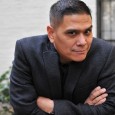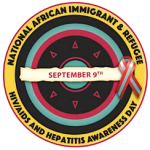I am teaching a course in Intercultural Communication this semester. For one of the movies - Sueño en otro idioma - a white student said “I get lost sometimes when I watch this movie.” And I responded, “many of us feel lost a lot in everyday life - we don’t understand the rules and get them wrong anyway - it’s good to de-center yourself sometimes.”
[NOTE: Yes, many of us living with HIV are immigrants/refugees - or one generation removed from it. This blog is meant to speak to people in the HIV community who do not feel included in discussions of immigration. I apologize for any “othering” that may arise.]
The HIV community is diverse and we often talk about intersectionality (the notion that our multiple identities intersect and get impacted differently) in our work, as well as building coalitions. We talk about making space for more marginalized part of our community, and being good “allies”. Last month, this Administration started pursuing a rule that penalizes immigrants who utilize public benefits. The flurry of news media, cruel laws and policies make it hard to keep track, but it’s a good time to find out more about this particular rule and how it can impact our community.
The “public charge” rule was released September 22, 2018 as a draft by the Department of Homeland Security. It limits visa and immigration approval and provides guidelines on “Inadmissibility on Public Charge Grounds”. These include the general use of public benefits exceeding 15% of FPG in a 12 month period and use of public benefits for 12 months in a 36 month period (months are counted simultaneously when more than one benefit is used). Those public benefits are inclusive of Medicaid, Medicare Part D, Section 8 and other Housing programs, Supplemental Nutrition Assistance Program (SNAP), Supplemental Security Income (SSI), Temporary Assistance for Needy Families (TANF), institutionalization for long-term care and general assistance cash benefits. This policy includes rules about people who are likely to require public benefits (as defined by medical status, available treatments and income).
Public charge regulations are meant to disenfranchise those most marginalized in the US. The clearest targets are to limit immigration access to families, those who are seniors and poor people. While nothing is HIV-specific, the mere fact that health status and potential use of health benefits is a factor will cause immigrants to avoid the use of vital programs meant to support public health in the HIV epidemic. As a community, we have to rally together to protect immigrants from more of this Administration’s harmful public policies.
The rule is not finalized. It is still in draft form. When it is not a draft, it will be available for public comment before it can be executed. At that point, we need all our voices heard on this. Even when it is finalized, organizations are set to take this rule to court. This will not ensure that it does not get executed. We have to fight it.
Even when it becomes final, a prior history of using public benefits will not be held against current applicants. We have to support immigrants in this struggle and make sure people are educated in rights under this new rule. We can be a movement that lets marginalized communities know: you are not alone.
Public charge is ludicrous and offensive. The United States is one of the wealthiest nations on earth and punishing immigrants for the use of the social support net is wrong. In addition, as an HIV community, we know the value and importance of health access. We have benefited greatly from Medicaid and other social support services. We would have lost many more friends, relatives and lovers without them. We know that people need to be comfortable and safe in accessing social support services or the HIV epidemic will only get worse.
When the top leadership provides an example, people follow. While Trump was running, his flagrant disregard for certain people - people of color, immigrants and women - inspired public hatred and heated conflicts across the United States. This continues to this day - look at the rash of white people who call the police (or threaten to) on people of color for a BBQ in the park, swimming with socks on, selling water bottles on a hot day and speaking Spanish at work. (Sadly, some of those calling the police adamantly believe they are “liberal”.)
We cannot be like that. We have to accept that this public charge rule is bad for all of the country and that it impacts us in HIV. We need to look outside our HIV silo. The disease does not exist outside of the myriad issues that impact our lives as people living with HIV.
HIV meetings and conferences have become more and more about popping pills and less and less about our lived context, experiences and communities. We need to see past the pharmaceutical money and the easy research paradigms that exclude the rest of our lives; we need to see and listen to how various policies impact our communities; and we need to act.
For more information, the Protecting Immigrant Familes campaign has produced a FAQ here. When the Positive Women’s Network-USA or AIDS United blast out an action alert about public charge, I want everyone to flood the draft with comments and criticisms. PWN-USA and the HIV Caucus are having a webinar October 3rd, 2018 for the HIV community on public charge (register here). If you’re reading this after October 3rd, then look up the recording of it or seek out more information on this cruel policy.
We must remember Vito Russo’s words, “[w]hen future generations ask what we did in this crisis, we’re going to have to tell them that we were out here today. And we have to leave the legacy to those generations of people who will come after us.”
What legacy do we want to leave?








4 Comments
4 Comments